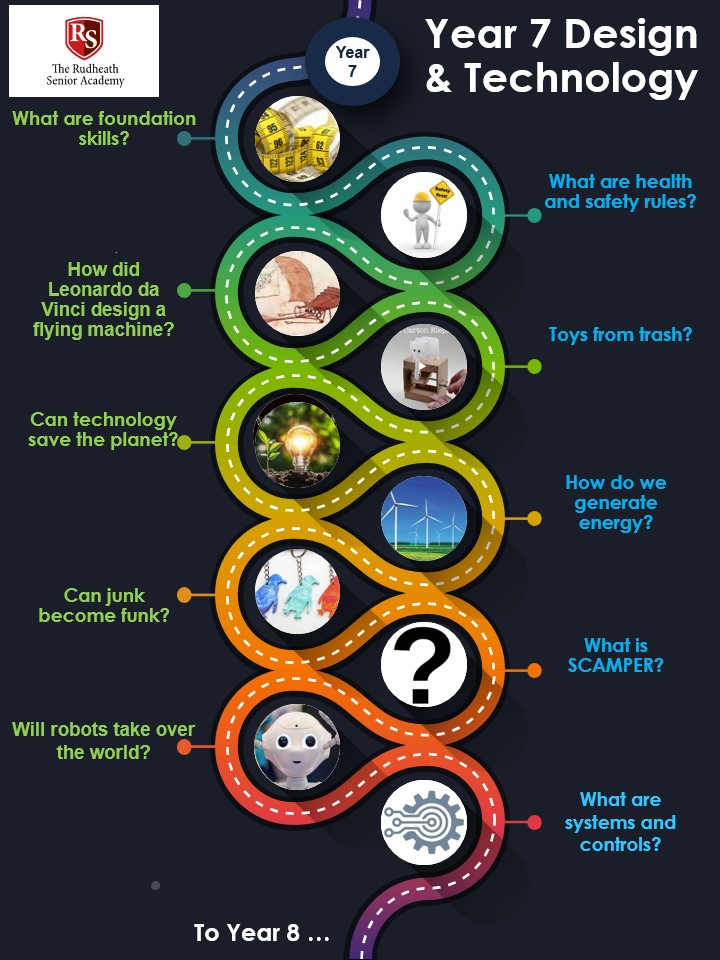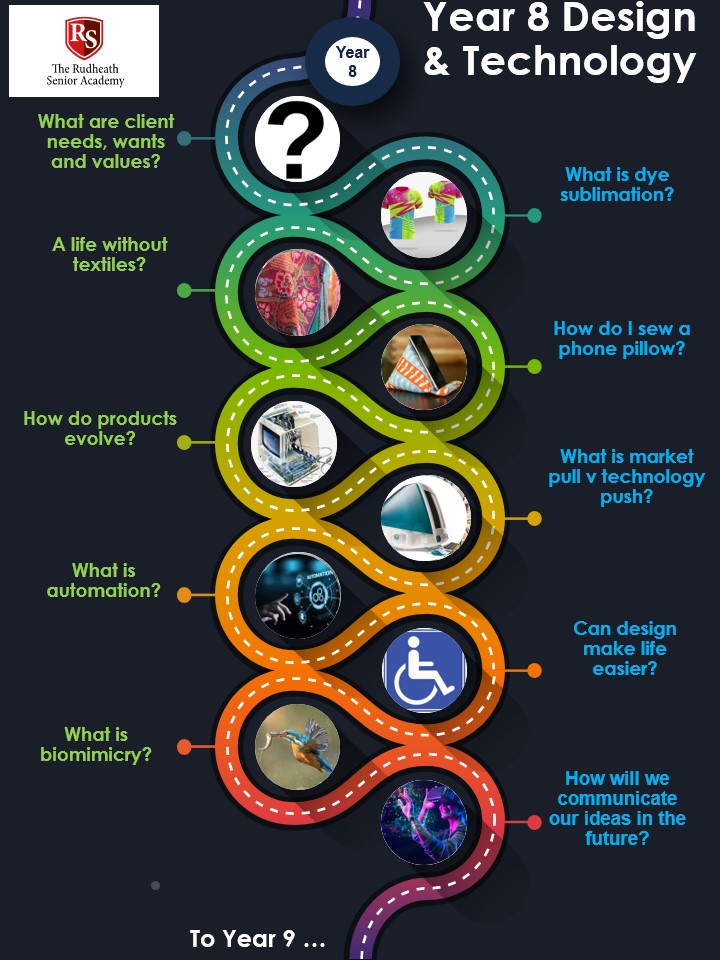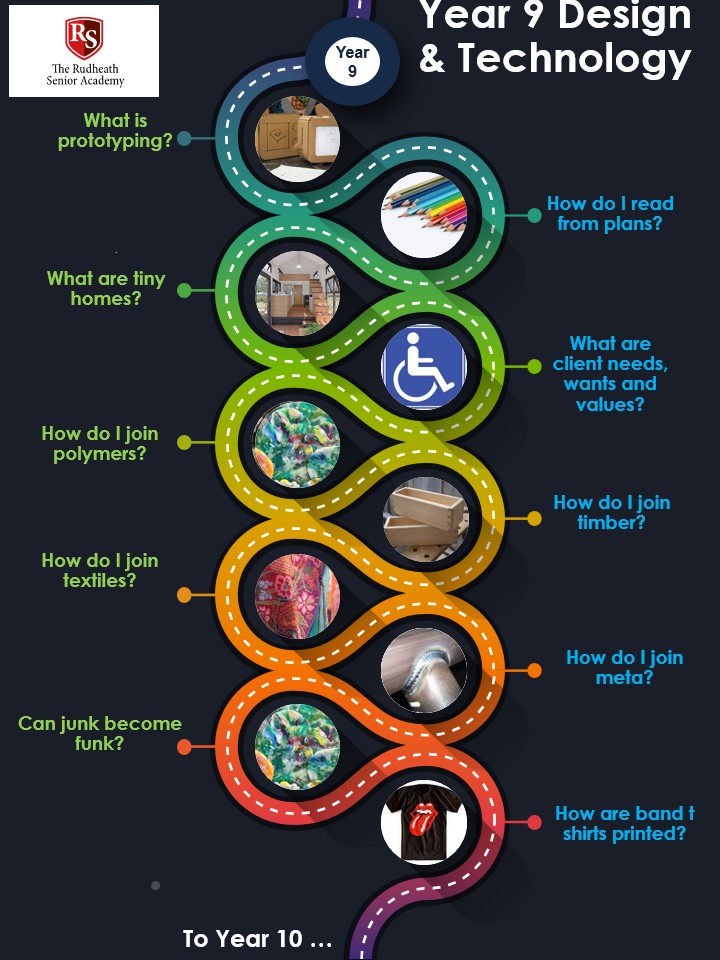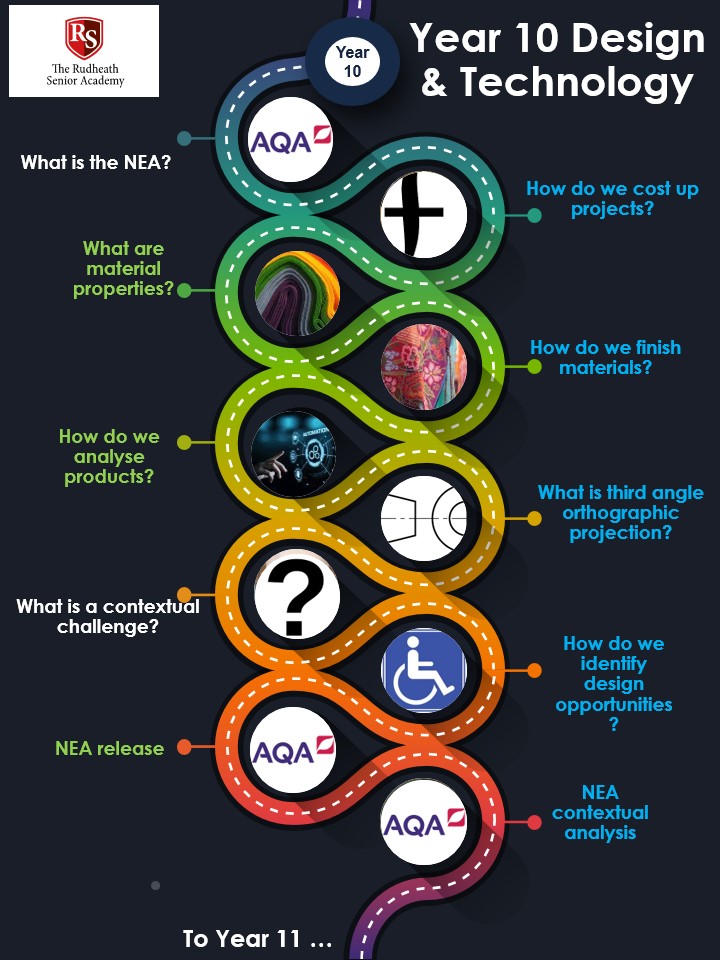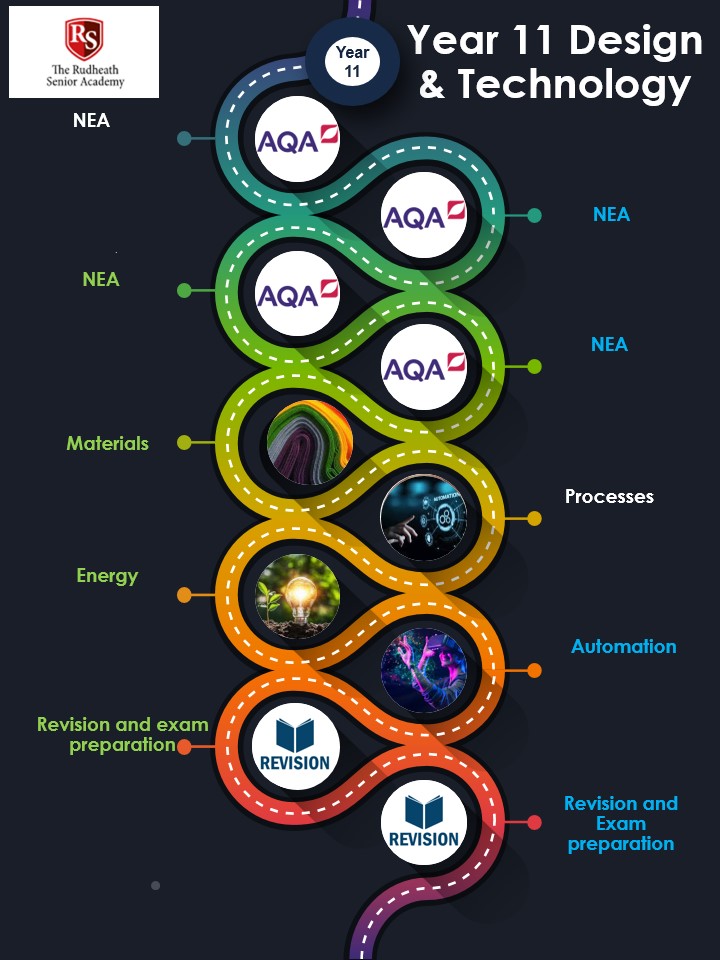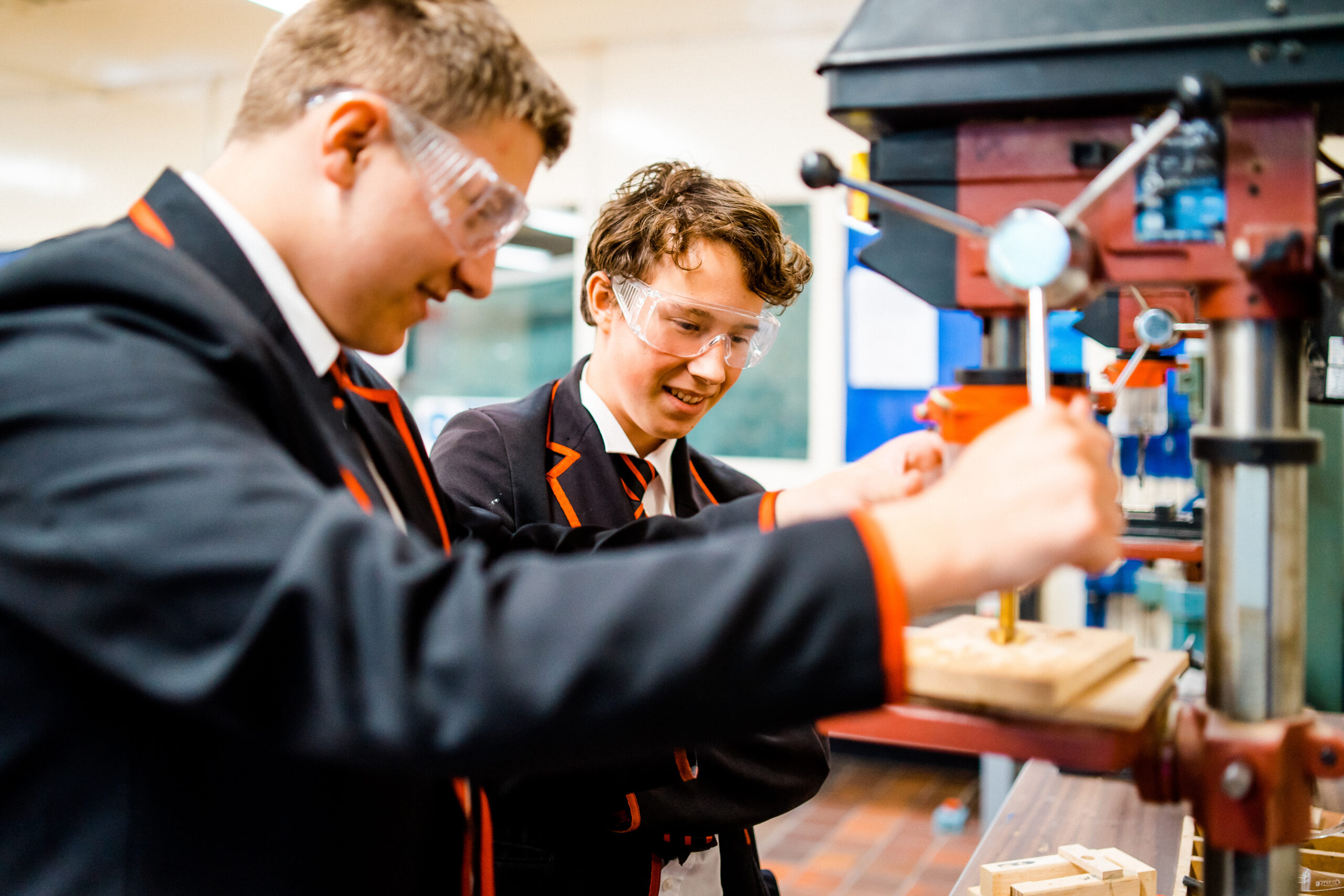
Design and Technology
Design and technology is an inspiring, rigorous and practical subject. Using creativity and imagination, pupils design and make products that solve real and relevant problems within a variety of contexts, considering their own and others’ needs, wants and values.
A key priority for Design & Technology is to open Pupils eyes to the world of possibilities around them, by offering a fully inclusive curriculum providing cultural capital opportunities for enrichment and inspiration, to equip learners with the knowledge and skills to become well rounded and educated citizens who have the potential to access A-level and beyond. Topics are specifically designed to enthuse and are inclusive of needs, ability and interest.
A part of this is to ensure Pupils continually understand the importance of design and technology in a variety of different fields from those well-known academic pathways such as architecture to less well-known connections such as automotive and aeronautical engineering. At Rudheath Senior Academy, we want all our pupils to be passionate about Design & Technology to value it as a subject and understand that it will open doors to a wide range of future careers.
The Design & Technology curriculum is carefully sequenced over KS3 and KS4 to develop the knowledge needed to prepare learners for GCSE, A-level and beyond. Pupils are consistently provided with opportunities to revisit key concepts to ensure deep and meaningful learning takes place throughout their Design & Technology journey.
Underpinning all we do is our academy ethos of excellence and kindness: to be our very best version of ourselves.
KS3
The KS3 National Curriculum for Design and Technology states that ‘Design and technology is an inspiring, rigorous and practical subject. Using creativity and imagination, pupils design and make products that solve real and relevant problems within a variety of contexts, considering their own and others’ needs, wants and values.’
This is further broken into:
The national curriculum for Design and Technology aims to ensure that all pupils:
- develop the creative, technical and practical expertise needed to perform everyday tasks confidently and to participate successfully in an increasingly technological world
- build and apply a repertoire of knowledge, understanding and skills in order to design and make high-quality prototypes and products for a wide range of users
- critique, evaluate and test their ideas and products and the work of others
The KS3 curriculum is structured with 1 hour lesson per week incorporating;
Pupils have their own sketchbook and throughout the year they complete 3 projects being assessed each half term on a level of skill based on A01, A02, A03 strands of assessment and learning. This allows sequences skills and knowledge that prepare pupils for accessing the GCSE course.
- AO1 Identify, investigate & outline design possibilities
- A02 Design & make prototypes that are fit for purpose
- A03 Analyse & evaluate
GCSE Content
The KS4 curriculum is structured with 5 hour lessons per fortnight incorporating;
Mini NEA style projects over Year 10 and Year 11. (Assessed half termly) Curriculum teaches skills based on A01, A02, A03 strands of assessment and learning.
The course is made up of two units of work.
Component 1: NEA Portfolio (50%)
- Pupils must produce a portfolio of work demonstrating their response to a contextual challenge set by the exam board.
Component 2: 2 hour written exam (50%)
- Question paper containing a mixture of multiple choice and longer answer questions.
Both units are marked internally and moderated by the examination board.
Assessment is based on three Assessment Objectives, which are designed to measure Pupils’ progress in terms of their development of knowledge and understanding.
Summative assessments occur three times throughout the year which involves a two week period of revisiting previous skills in order to create a final piece of work.
Pupils become increasingly independent from Years 7 – 11, building confidence in practical and skills and greater depth of understanding in each area of learning.
This involves a series of steps within each lesson that begins with activating prior knowledge and leading to independent practice before ending in structured reflection. These are based on Barak Rosenshine’s Principles of instruction.
- Teacher starts each lesson with a knowledge drill (review of relevant prior knowledge to activate schemata ready to build new knowledge into long term learning).
- Learning question.
- Small amounts of new knowledge are presented at a time with the opportunity for Pupils to then practice this new material.
- Regular, extensive questioning of all Pupils .
- Model answers and worked examples are regularly provided where appropriate.
- Give Pupils opportunities for extensive, successful, independent practice.
- Use formative/summative assessment and feedback-next steps to secure Pupils’ progress.
- Reflection of learning question.
- Follow Behaviour for Learning protocols.
- Use of knowledge organisers.
Our design and technology curriculum has been designed to ensure there are consistent opportunities for low stakes testing throughout. This is through the use of knowledge drills every lesson that focus on prior knowledge relevant to the lesson and the use of design sheet activities at specific stages of learning.
Our assessment plan offers plenty of opportunity for retrieval practice and assessment of long-term learning. It is also designed to develop independent learning where pupils are challenged to respond to contextual challenges, identifying design opportunities and solving real and relevant problems.
Year 7
Pupils complete 3 end of topic assessments (each term), which focus on demonstrating knowledge recall and understanding of key design skills. These assessment comprise of a blend of design sheet assessments and multiple choice and longer written answers. Pupils then peer assess and self-evaluate their design sheet work whilst the teacher marks the written responses with focus on identifying areas of weakness and/or misconceptions.
Each test will contain synoptic questions about previous content so will gradually increase in length, with the final end of year test assessing their learning over the previous year.
Year 8
Pupils will again complete 3 end of topic assessments, which focus on knowledge recall and application of design and evaluation skills. These contextual challenges are completed independently by pupils. Pupils then peer assess these using the mark scheme and again complete relevant follow up questions which focus on their areas of weakness.
Each test will contain synoptic questions about previous content so will gradually increase in length, with the final end of year test assessing their learning over the previous year.
Year 9
Assessments take place at the end of every topic and with pupils working independently on these. Extended questions now take the form of GCSE exam style questions (6-mark questions), which are marked for literacy and design knowledge. These are modelled and scaffolded by the teacher to support pupils in how to best answer this style of questions.
Year 10
Pupils complete a GCSE style NEA project in terms 1 and 2 and then start the actual NEA in term 3. Pupils complete formal mock exams at the end of the year to access knowledge and understanding. Questions are based on past GCSE questions.
Year 11
Pupils continue to work on their NEA in term 1 and complete their work in term 2. Pupils complete a mock GCSE examination paper at the end of term 1 and a second in term 2.
As a faculty we are incredibly proud of our cultural capital offer for our pupils. Opportunities are mapped around the curriculum to support the content and to provide context. Pupils develop a better understanding when they can experience and be inspired by live Theatre. This in turn allows pupils to engage more and be inquisitive surrounding their learning.
- Drama teachers perform on a daily basis to allow students to see what mastery looks like.
- Extra-curricular activities are open to all pupils at Rudheath. These clubs will often lead to performance opportunities in assemblies, community projects and shows.
- Throughout the year we offer trips, performance opportunities, visits from performers and theatre professionals, awards, competitions between pupils to increase pupil engagement.
- Homework that requires students to test their knowledge on techniques and performance styles and evaluate their performance for that half term.
We are passionate about improving the cultural and technical capital of our young people so they are equipped with the knowledge and skills for the next stage of their journey.
We are currently developing an enrichment programme in design and technology that not only continues our work with STEM ambassadors but also provides a variety of experiences such as electronics, engineering, virtual reality and 3D printing. We also offer Crest award, V&A Innovate and Design Ventura, creating meaningful design experiences for each year group.


